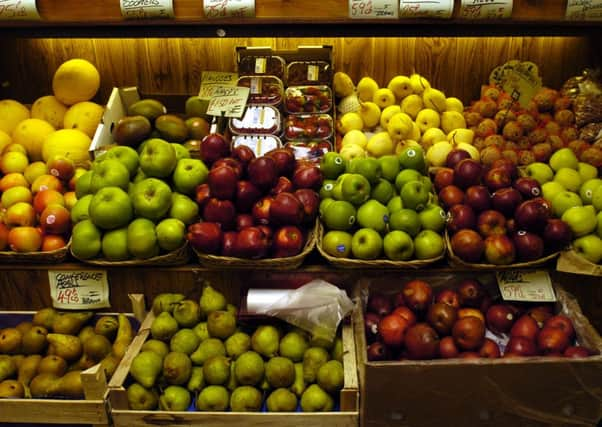Children’s diet ‘affected by fear over income’


The Edinburgh study found a drop in family income does not trigger a decrease in the amount of fruit and vegetables children eat, a finding which challenges the idea that a healthy diet is directly linked to income levels.
However, it was found that diets deteriorated when parents believed they were encountering financial hardships.
Study
Advertisement
Hide AdAdvertisement
Hide AdThe study, which used data from the Growing Up In Scotland survey, compared the diet of about 3000 children at the age of two and then again at age five. It also tracked the income of their parents over the same period.
The results showed the diets of young children deteriorated between the ages of two and five, regardless of a family’s income level.
By the age of five, all children were likely to eat fewer vegetables and to have more sweets and sugary drinks than at two. Researchers said this could be because children become better able to demand and reject foods as they grow.
Parents whose financial situation changed from ‘feeling comfortable’ to ‘finding it difficult’ as their offspring grew from age two to age five fed their children fewer varieties of fruit and vegetables, and allowed them to eat crisps and sweets more often.
Among families whose income did not change, children from families with a low income were more likely to have poorer diets to begin with.
Two in ten (20.5 per cent) of these children lowered their sweet consumption compared with only one in 10 (11.2 per cent) in high-income homes.
Response
Dr Valeria Skafida, the report’s author and research fellow at the centre for population health sciences, at the university, said: “Changes in how parents felt about money were more strongly linked to their children’s diets than their actual incomes. This could be because income is not evenly distributed within the home, or because it is perception of poverty rather than measured poverty that determines food choices.”
John Dickie, head of Child Poverty Action Group Scotland, said: “We know that parents go to extraordinary lengths to protect their children from the poverty they face, too often going without food themselves to give their children the best they can.
Advertisement
Hide AdAdvertisement
Hide Ad“But, as this research shows yet again, despite parents’ best efforts, overall low income is clearly linked to poorer diet.
“As more and more parents find it difficult to manage financially in the face of stagnating wages and unprecedented cuts to family benefits and tax credits it is vital we do all we can to give them the support they need to give their children the best possible start in life.”
The Growing Up in Scotland study is funded by the Scottish Government and carried out by ScotCen Social Research in collaboration with the centre for research on families and relationships at the University of Edinburgh.
The researchers’ findings are published in the Journal of Epidemiology and Community Health.